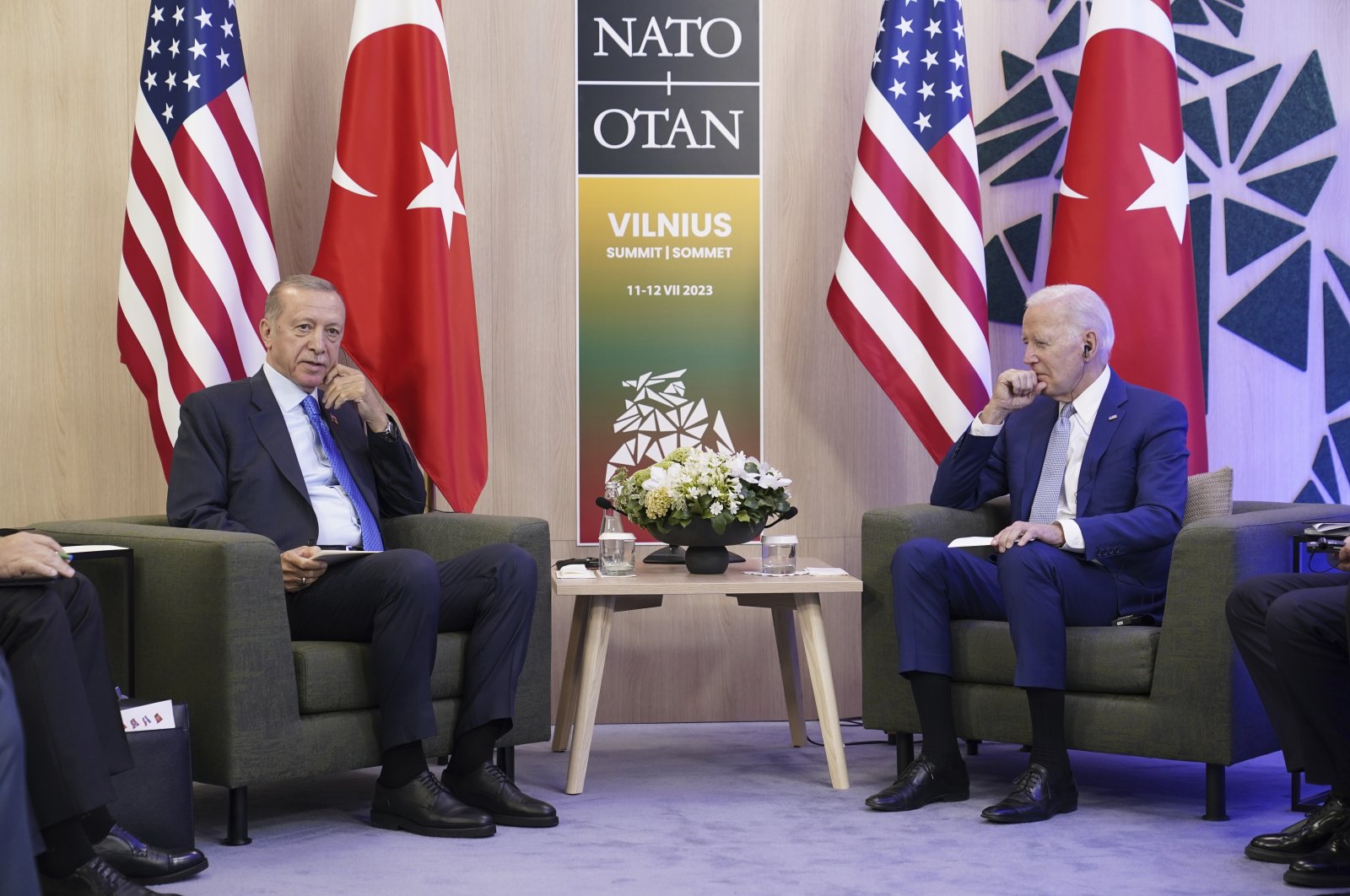
The economic relations between Türkiye and the United States have maintained pace in the first half of this year, business associations said Monday, citing progress and efforts to achieve a mutual trade target set by the NATO allies.
Ties between Türkiye and the U.S. boast a long history of military and economic cooperation, but their strategic partnership has seen many diplomatic ups and downs over the recent years over multiple challenges and disagreements.
The disputes include the U.S.’ cooperation with the PKK terrorist organization's Syrian wing, the YPG, its stance toward the Gülenist Terror Group (FETÖ), disagreements over Ankara’s purchase of Russia’s S-400 air defense system and Washington’s sanctions against Türkiye.
Still, the relationship between the two countries constitutes one of the most important and well-established strategic relations in the world, according to Tankut Turnaoğlu, head of the American Chamber of Commerce (AmCham) in Türkiye. He says trade and investments have played a key role in the strategic relationship.
AmCham Türkiye represents 125 U.S.-based companies that contribute some $60 billion (TL 1.62 trillion) to the Turkish economy, according to Turnaoğlu.
Intensified talks between the two countries’ leaders and diplomats over the last two years, the launch of a strategic mechanism and Ankara’s role in the Ukraine war have signaled intentions to mend and strengthen ties.
Türkiye and the U.S. aim for $100 billion in bilateral trade, a target endorsed by President Recep Tayyip Erdoğan and his American counterpart, Joe Biden.
The Biden administration has also repeatedly expressed its support for Türkiye’s request from October 2021 to buy $20 billion of Lockheed Martin Corp. F-16 fighters and nearly 80 modernization kits for its existing warplanes.
The prolonged process, opposed by some members of the U.S. Congress, has frustrated Türkiye, which still waits to get a green light for the deal even though Biden has signaled that the U.S. intended to proceed with the sale.
"I’m much more optimistic than I’ve ever been,” Erdoğan said when asked about the F-16 deal after he met with Biden on the sidelines of the NATO summit in Vilnius, Lithuania, earlier this month.
Erdoğan dubbed his previous meetings with Biden as "warm-up sessions” and said a new period would start between Türkiye and the U.S.
Türkiye-U.S. Business Council (TAIK) Chair Mehmet Ali Yalçındağ also said the leaders’ meeting in Vilnius launched a new process. "We want to accelerate trade relations even more with this momentum,” Yalçındağ said in a statement, citing cooperation in the defense industry that he says is expected to gain further pace in the coming period.
The bilateral trade volume reached $31.3 billion over the last 12 months, including $15.9 billion of Türkiye’s exports and imports, which stood at $15.4 billion, according to Turnaoğlu.
Shipments to the U.S. in June alone hit $1.3 billion, making Türkiye’s second biggest export market after Germany. Yalçındağ says year-end trade volume would exceed $30 billion.
Turnaoğlu added that as part of Türkiye’s priority to develop U.S. investments and trade, "we continue to contribute to the goal of bilateral trade reaching the level of $100 billion.”
To back this goal, Yalçındağ said they would host a major investment conference in the U.S. in September, which will host Treasury and Finance Minister Mehmet Şimşek and Central Bank of the Republic of Türkiye (CBRT) Governor Hafize Gaye Erkan with American businesses and leading financial institutions.
Yalçındağ also informed Erdoğan is expected to meet with top executives of the 25 Fortune100 American companies.
Turnaoğlu stressed some American companies see Türkiye as a regional center. "About 20 of our members in our association manage about 80 countries from Türkiye. We are also continuing our work within the scope of our third priority, which we aim to ensure greater participation of Turkish companies in our ecosystem in the global value chain,” he said.
Yalçındağ said Türkiye’s mediator efforts in the war in Ukraine, including the brokering of the landmark Black Sea grain deal, which was halted by Russia earlier this month, showcased the importance of Türkiye’s strategic role.
He also said they have been positioning Türkiye as an alternative market to China during talks with state officials. "We have already started to see a positive return of this,” Yalçındağ added.
